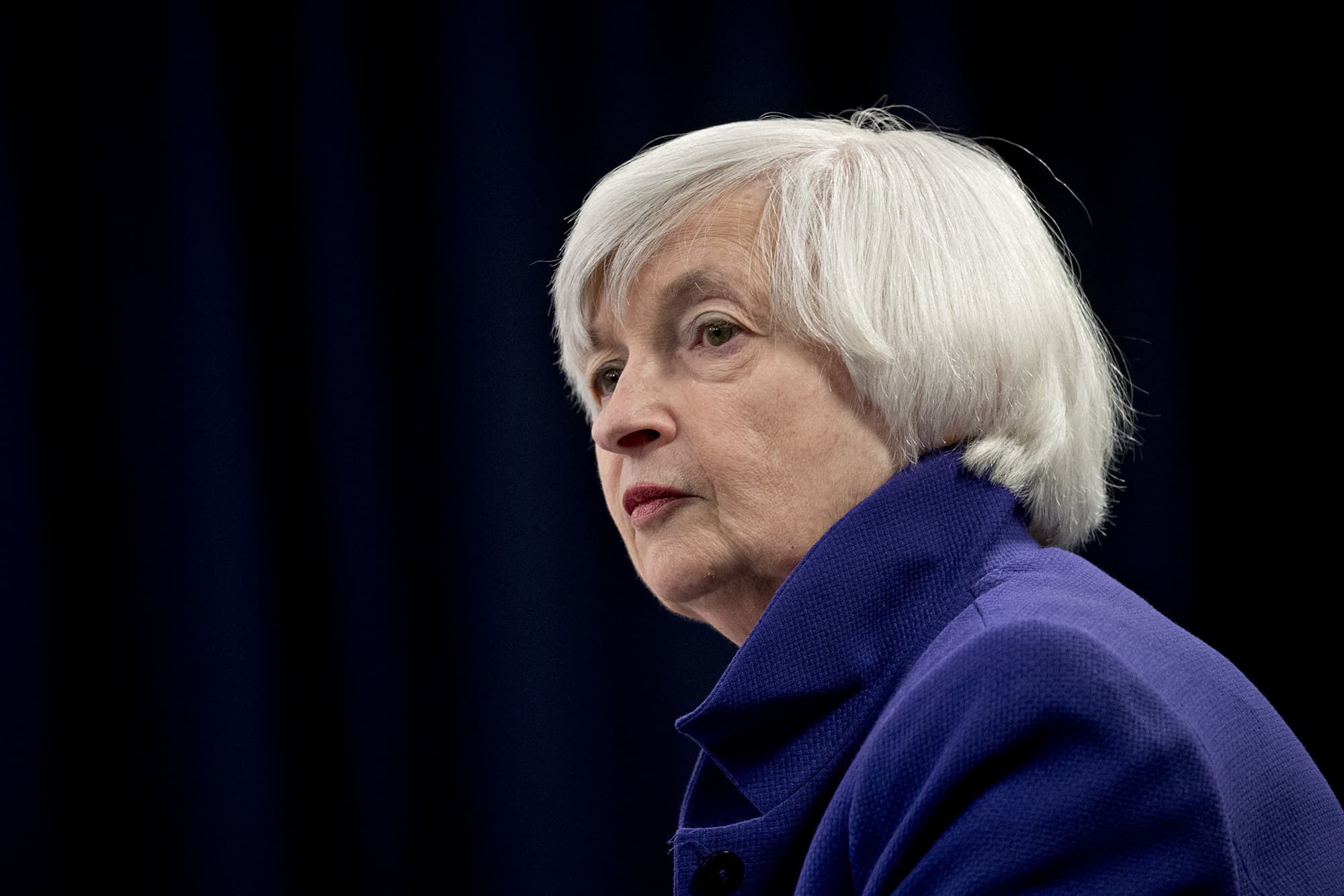
Former Federal Reserve Chair Janet Yellen has been nominated by President-elect Joe Biden as his Treasury secretary — a position that would make her, if confirmed by the Senate, a critical figure in U.S. trade negotiations with China.
U.S.-China tensions have escalated since President Donald Trump took office in 2017. Actions Trump has taken against China include slapping elevated tariffs on Chinese goods and restricting access to the American market for some Chinese companies. He argued these measures would address what he said were risks to U.S. national security and unfair trade practices by Beijing.
Yellen has in the past acknowledged concerns about Chinese industrial practices. Her policy stance on China is less known, but she has supported open trade and the international trading system — an indication that she, like many on Biden's team, would be a moderate voice.
"If you look at her history, she has been more moderate on China issues than most folks in the Trump administration," Clete Willems, a former top White House trade negotiator, told CNBC's "Street Signs Asia" last week.
"I think the Biden administration wants to prioritize dialogue and communication, try to ease some of the tensions. I think that's something to watch very closely here to see what kind of role she's going to play," said Willems, who left the White House in April last year and is now a partner at law firm Akin Gump Strauss Hauer & Feld.
Here are Yellen's previous comments on trade and China.
U.S. protectionism
In June 2018 — four months after stepping down as Fed chair — Yellen raised concerns that the U.S. under Trump was turning inward and away from the rules-based, multilateral system that it used to champion.
"We're seeing a huge retreat from the principles the US has espoused and all the institutions that we built in the postwar period," she said at a Credit Suisse event.
"Resisting protectionism and strongly supporting a rules-based multi-lateral system are what the US stood for and promoted as a global system with great success," she added. "But, this is a set of principles that the US has walked away from and has been unwilling to endorse."
The Trump administration in 2018 imposed or threatened tariffs on major American trading partners such as Canada, China and the European Union. The president often made his tariff moves unilaterally, bypassing international bodies such as the World Trade Organization. Trump called the WTO "broken" and threatened to pull the U.S. out of it.
Yellen said at the Credit Suisse event that "there are some valid trade issues with China, and perhaps with Europe, but we've always approached dealing with these issues in an orderly way respective of WTO principles and long-established principles of trade."
"And it greatly worries me to see the US taking bilateral approaches and unilateral action."
U.S. concerns about China
Yellen has so far revealed little indication of how she would approach negotiations with China. But she had on multiple occasions acknowledged the contentious issues facing U.S.-China relations.
At the Asian Financial Forum in Hong Kong in January, Yellen warned that issues such as Chinese state subsidies for state-owned enterprises and U.S.-China competition in technology — which touched on national security concerns — are "quite difficult to deal with," reported CNN.
Those issues will have "very significant consequences for the global economy," she said, according to the report. Yellen said that the two countries failing to find common ground could hurt technological progress and split the world into two competing groups — which would hinder trade and global integration, CNN reported.
The former Fed chair reiterated at a World Bank event in February that the U.S. has raised "many valid concerns" about its trade relations with China. She cited issues such as the forced transfer of technology from overseas companies to their Chinese partners and alleged intellectual property theft, according to a transcript of the event.
"I think these are really important issues that we're beginning to get to," said Yellen.
U.S. tariffs on China
While recognizing U.S. concerns about China, Yellen appeared skeptical that the use of tariffs would help the U.S. achieve its goals.
She pointed out at the World Bank event that both countries reaching a "truce" through the "phase one" trade deal is a "healthy and good thing" for business confidence. But the agreement left elevated tariffs in place — and that's harmful for American businesses, she said.
"You know, when you look at businesses in the United States, if a motive for putting in place tariffs was to make U.S. manufacturers more competitive and to increase job prospects in manufacturing in the United States, I would say we haven't seen that," Yellen in February.
"On the one hand, the tariffs afford some protection for U.S. manufacturers; but on the other hand, they serve as tariffs on intermediate inputs that are important to these same businesses. And overall, it seems to me that it's been a wash from the perspective of U.S. jobs, especially in manufacturing," she added.
"What" - Google News
December 02, 2020 at 11:41AM
https://ift.tt/36tHz01
What Janet Yellen's nomination as Treasury secretary means for U.S. policy on China and trade - CNBC
"What" - Google News
https://ift.tt/3aVokM1
https://ift.tt/2Wij67R
Bagikan Berita Ini














0 Response to "What Janet Yellen's nomination as Treasury secretary means for U.S. policy on China and trade - CNBC"
Post a Comment